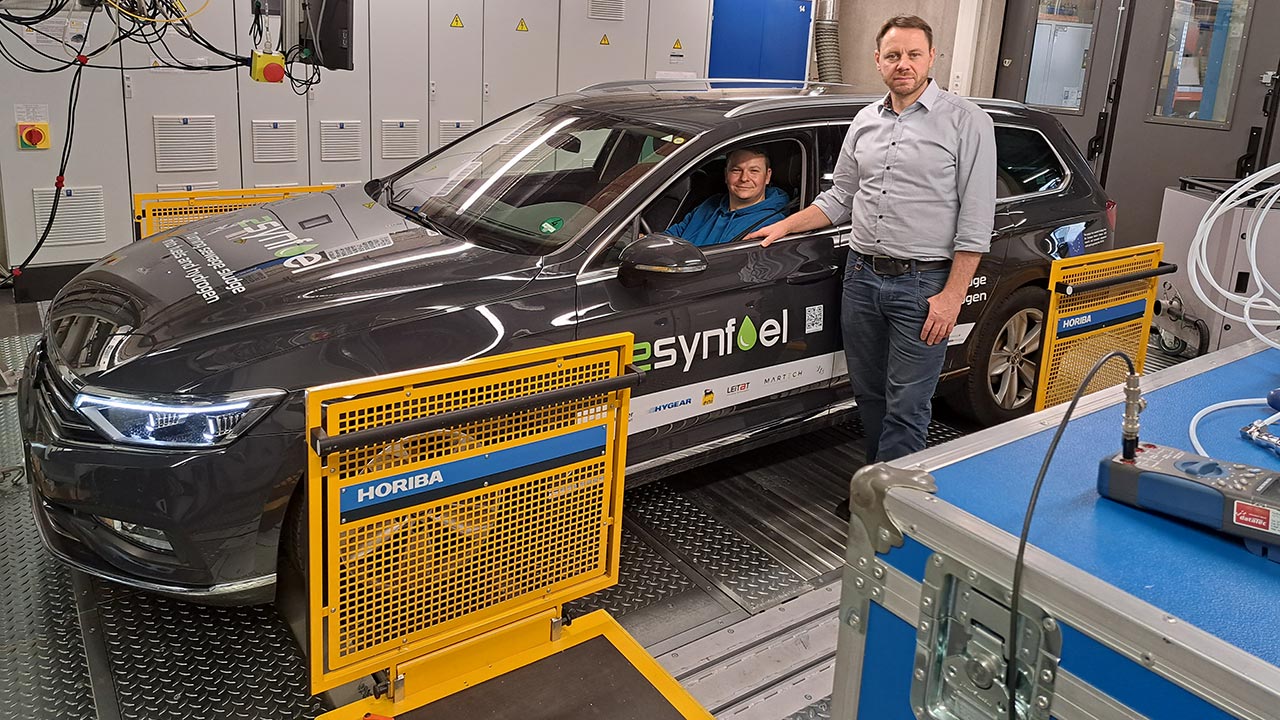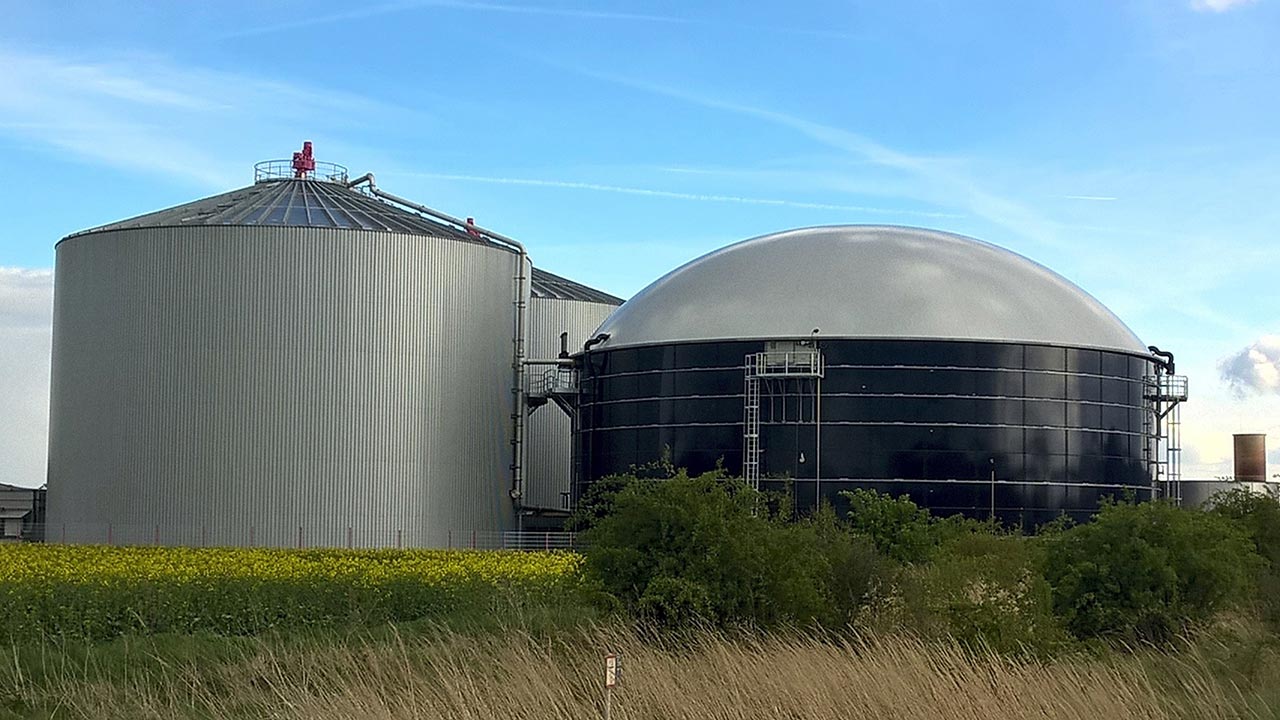Biodiesel from sewage sludge
A new reforming process generates another source of fuel from biogenic waste.

Electromobility is experiencing rapid growth. However, important issues relating to the charging infrastructure for electric cars remain unresolved. Further, there will continue to be areas of application in the mobility sector for which battery-electric solutions are less suitable. Synthetic, CO2-neutral fuels could cover these areas. A team of researchers at Coburg University of Applied Sciences is now investigating another approach to producing biogenic, climate-friendly diesel.
Thermocatalytic reforming
In the EU-funded project To-Syn-Fuel, the researchers use a process developed at the Fraunhofer Institute for Environmental, Safety and Energy Technology UMSICHT. "Thermocatalytic Reforming" (TCR) is the name of the method, which breaks biomass down into its components, then refines and purifies them. In the case of the research project, the biomass is a waste material, more precisely sewage sludge. At the end of the new process, there are ultimately three biogenic products: a synthesis gas with a high hydrogen content, biochar and a crude oil.
The project team is now using the latter to produce biodiesel. According to Fraunhofer calculations, this fuel releases around 85% fewer CO2 emissions than petroleum-based diesel. "In the long term, it could be produced in hundreds of small, decentralized plants," emphasizes Coburg-based fuel researcher Markus Jakob. He adds that in Bavaria alone there is the potential to convert around 400,000 metric tons of sewage sludge into standard-compliant fuels from 2030.
Testing on the chassis dynamometer
The exact performance data of the new biodiesel are currently being determined with the help of a series-production diesel car on the roller dynamometer at Coburg University of Applied Sciences. "The aim of our investigations is to analyze consumption and emission values in comparison with the standard fuel," Jakob explains.
If the new fuel becomes established, it would not cover the entire demand for diesel. Nevertheless, it could improve the CO2 balance of road traffic, the researcher is convinced: "Since the TCR process can already be used to produce fuels that comply with standards, it is easy to mix the available quantities of the new fuel with known series fuels."
bl


